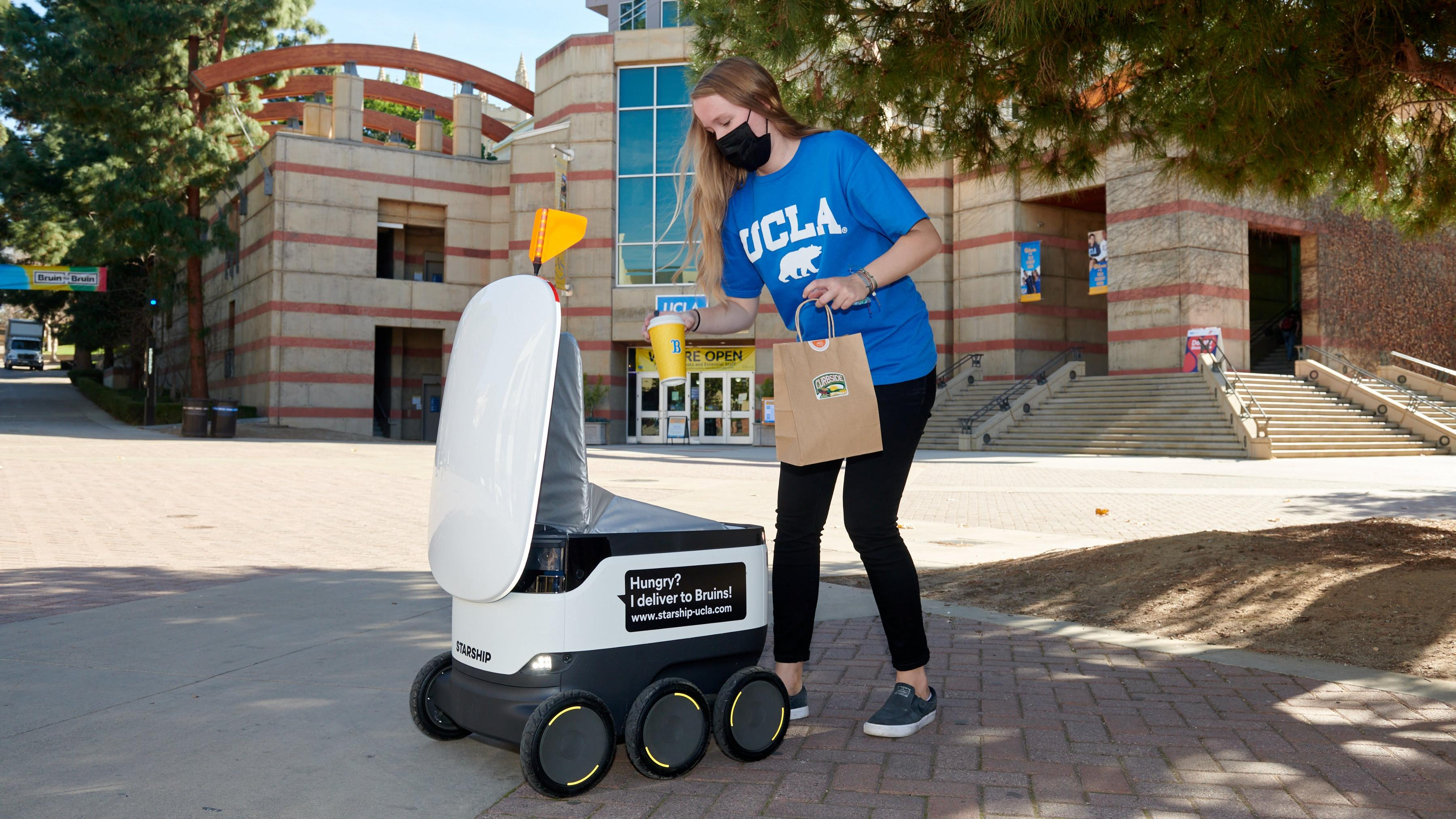Robots Are Hitting The Streets Of Chicago
The food robots are coming! The food robots are coming!
First it was Divvy Bikes making their way through the streets. Then came the electric scooters (Divvy, Spin, and Lime) strewn about on the parkways. Now, food delivery robots will soon be hitting the sidewalks of Chicago as part of a pilot program, reports Grocery Dive. Pedestrians, take heed.
Chicago's City Council recently approved a Personal Delivery Device pilot program to operate under an Emerging Business Permit for the next two years, per a press release from the City of Chicago. The permit is non-renewable and intended for pilot programs such as this one. Tech companies can apply for the permit and then partner with local restaurants and stores to start making deliveries within a certain radius of those businesses. Whether you make use of them or not, you're likely to spot them zooming around as you move about the city.
Where these food delivery robots come from
This is not the first time the food robots will be hitting the streets in a highly populated area. Although the new permit and City Council approval allows for many tech companies to participate in the pilot program, one company, Starship, already had wheels on the ground in Illinois in August of 2021.
Before testing in busy city streets, the Starship fleet was cruising the campuses of the University of Kentucky, the University of Nevada Reno, and Embry Riddle Aeronautical University in Daytona Beach, Florida, and the University of Illinois Chicago. Although most college campuses do have a lot of foot traffic, testing the food delivery bots on those sidewalks is still a fairly controlled environment compared to that of a major city like Los Angeles or Washington DC, where similar programs have had success. Although the intention behind the robots is to provide more convenience to customers, there are plenty of concerns regarding how these little bots will do on the busy streets of Chicago.
How food delivery robots work
When it comes to deploying robots, top concerns include vandalism and the possibility of overcrowding and inconveniencing pedestrians who already use the sidewalks. I can just imagine the wintertime shit show: side-stepping electric scooters, carving a path around abandoned and undocked Divvy bikes, walking gingerly to avoid any undetectable ice patches, and now dodging what is essentially a sport utility Roomba on the go.
Per Starships's website, its robots weigh about 80 pounds and can carry around 20 pounds of cargo. So while vandalism is definitely a possibility, theft probably won't be as much of a concern—that's a pretty heavy, awkward load to run off with. Plus, the robots have 12 cameras and an audio communication system that alerts the company if the device is picked up or messed with in any way. The bots are operated using an app and can only be opened by either the business or the customer using the app, so it's not so easy to steal the contents of the delivery. The robots are able to function autonomously using a combination of cameras, sensors, and GPS tracking.
There are plans to evaluate the performance of the bots midway through the two-year pilot period, which should allow for any necessary adjustments to be made.
If you live in Chicago or one of the other potential testing sites for this pilot program, be sure to smile and give a polite "good morning" to each bot you pass. You never can be too careful—if the food delivery robots eventually become our overlords, it's probably best to be on their good side.
